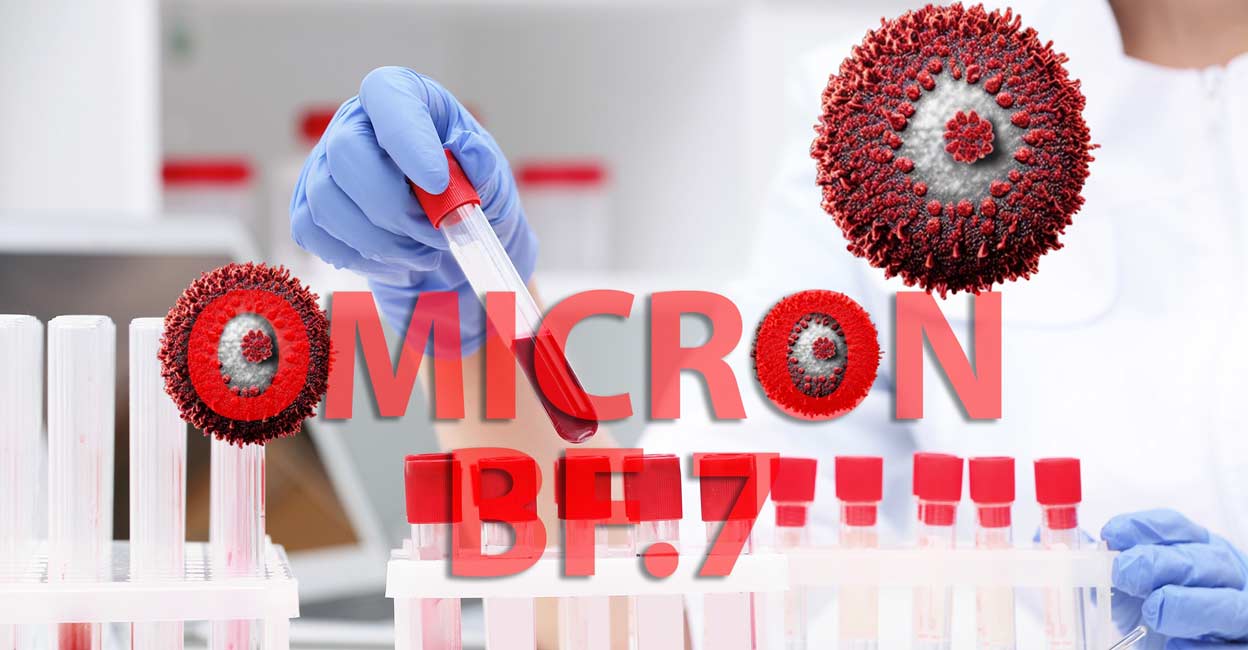It seems like Covid-19 has been around forever. But did you know that the original strain of this virus is known as Covid-Omicron BF.7? In this article, we’ll explore what this means, how it is different from other strains, and what implications it could have for the future of the pandemic.
Table of Contents
What is Covid Omicron BF.7?
Covid Omicron BF.7 is a novel coronavirus that was first identified in 2019. It is similar to other coronaviruses that cause respiratory illness, but it is more closely related to the SARS-CoV virus that caused the 2002-2004 SARS pandemic. Covid Omicron BF.7 is believed to cause a milder form of respiratory illness, but it is still highly contagious and can cause serious illness in some people. There is currently no vaccine or treatment available for Covid Omicron BF.7, so prevention is the best way to protect yourself from this virus.
What are the symptoms of Covid Omicron BF.7?
Covid Omicron BF.7 is a novel coronavirus that was first identified in 2019. Symptoms of Covid Omicron BF.7 include fever, cough, and shortness of breath. These symptoms can range from mild to severe, and some people may experience more severe symptoms such as pneumonia or bronchitis. In some cases, Covid Omicron BF.7 can lead to death.
If you think you may have Covid Omicron BF.7, it is important to seek medical attention right away. Early diagnosis and treatment are critical for the best possible outcome.
How is Covid Omicron BF.7 treated?
There is currently no known cure or prevention for Covid Omicron BF.7, and the disease is still largely shrouded in mystery. However, there are some treatments that have been shown to be effective in alleviating symptoms and helping patients recover.
The main course of treatment for Covid Omicron BF.7 is supportive care, which means making sure the patient is comfortable and has all their basic needs taken care of. This can include providing oxygen therapy, IV fluids, and pain relief medication.
In some cases, patients may also be treated with antiviral drugs or steroids to help reduce inflammation and swelling. There is currently no definitive evidence that these drugs are effective against Covid Omicron BF.7, but they may be helpful in severe cases.
If you suspect you or someone you know has Covid Omicron BF.7, it is important to seek medical attention immediately. Early diagnosis and treatment is key to minimizing symptoms and maximizing chances of recovery.
What is the prognosis for Covid Omicron BF.7?
Covid Omicron BF.7 is a novel coronavirus that was first identified in 2019. As of early 2020, not much is known about the virus and there is no specific treatment or vaccine available. The prognosis for Covid Omicron BF.7 is currently unknown, but it is reasonable to assume that the virus will cause mild to moderate respiratory illness in most people who become infected. A small percentage of people may develop more serious illnesses, including pneumonia, and a very small number of people may die from the virus.
How can I prevent Covid Omicron BF.7?
Covid Omicron BF.7 is a novel coronavirus that was first identified in 2019. It is similar to other coronaviruses, such as SARS-CoV and MERS-CoV, but it is more contagious and causes more severe respiratory illness. As of June 2019, there is no vaccine or specific treatment for Covid Omicron BF.7 infection, so the best way to prevent it is to avoid exposure to the virus.
The best way to avoid exposure to Covid Omicron BF.7 is to practice good hygiene and avoid close contact with people who are sick. You should also avoid touching your face, especially your eyes, nose, and mouth. It’s also important to clean and disinfect surfaces that are often touched, such as doorknobs, countertops, and light switches. If you are sick, you should stay home and away from others to prevent the spreading of the virus.
Conclusion
Covid Omicron BF.7 is a novel coronavirus strain that was first identified in the UK. It has been found to spread more quickly than many other variants, leading to increased concerns of its potential to cause further disruption and loss of life across the globe. Healthcare providers have already implemented additional safety measures such as contact tracing and quarantine procedures for those exposed to Covid Omicron BF.7 cases in an effort to contain the virus’ spread before it becomes widespread.
To help keep your family safe, practice social distancing, wear face masks when in public spaces, use hand sanitizer frequently, and be sure to regularly check with your local health department for any updated recommendations regarding this new variant of Covid-19.
Read More Interesting Blogs Here:

